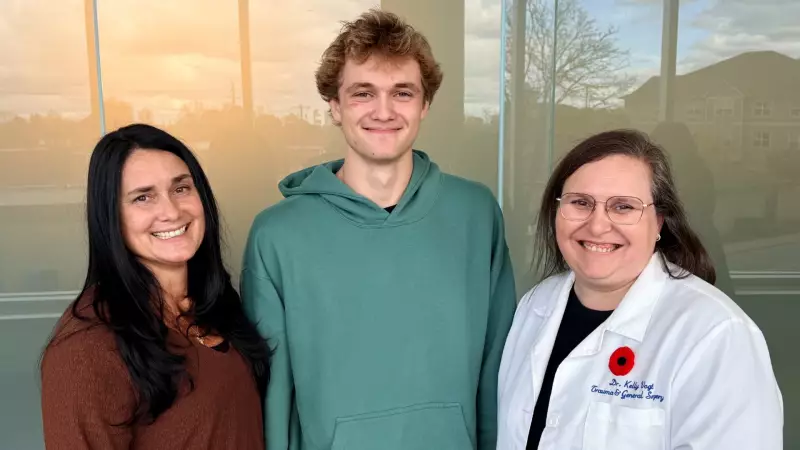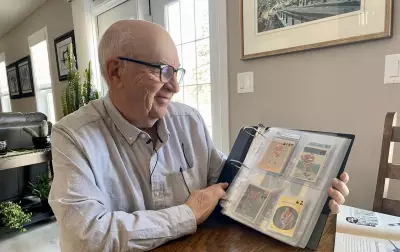
What began as a typical day for 17-year-old Jackson Teller nearly turned tragic when a severe workplace accident left him bleeding profusely from a deep leg wound. The quick actions of his supervisor, trained in the Stop the Bleed program, made the difference between life and death.
A Routine Day Turns Critical
Jackson was working at a London auto shop when a metal bracket sliced through his leg, severing a major artery. "I looked down and saw blood spraying everywhere," Jackson recalls. "I knew immediately this was serious."
The Training That Saved a Life
His supervisor, Mike DeCoff, didn't hesitate. Using skills learned from the Stop the Bleed course, he applied direct pressure and used a tourniquet to stop the catastrophic bleeding. "The training just kicked in," DeCoff says. "I knew exactly what to do, and that knowledge saved Jackson's life."
Why Stop the Bleed Matters for Every Community
This near-tragedy underscores why bleeding control training is essential for workplaces, schools, and public spaces across Canada. Statistics show that uncontrolled bleeding is the leading cause of preventable death in trauma cases. The Stop the Bleed program teaches ordinary people how to:
- Recognize life-threatening bleeding
- Apply direct pressure effectively
- Properly use tourniquets
- Pack wounds with gauze
A Message of Hope and Recovery
After multiple surgeries and extensive rehabilitation, Jackson has made a remarkable recovery. He's now using his experience to advocate for broader adoption of Stop the Bleed training. "If this can happen to me, it can happen to anyone," he emphasizes. "This training needs to be everywhere."
How Canadians Can Get Trained
Stop the Bleed courses are available through various organizations including hospitals, community centers, and workplace safety programs. The training typically takes less than two hours but provides skills that can last a lifetime—and save one.
As Jackson's story demonstrates, you don't need to be a medical professional to save a life. You just need the right knowledge and the courage to act when seconds count.






